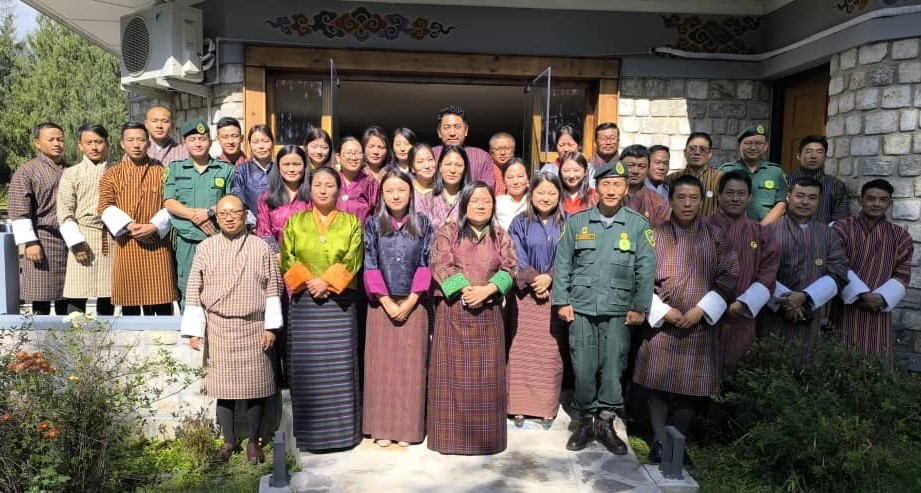The data management training on Forest Information Reporting and Monitoring System (FIRMS) for the data managers of 24 field offices and program focal of functional divisions was held from October 14th to 18th, 2024, at Kichu Resort, Paro. The five-day training program aimed at enhancing the capacity of data managers of field and functional offices in managing the data in FIRMS. Organized by the Forest Monitoring & Information Division (FMID), the training provided participants with knowledge and skills on data handling, cleaning, analysis and reporting using Microsoft (MS) Office Excel and Google Looker Studio (GLS).
The training commenced with a presentation on FIRMS by the FIRMS administrator, covering the system’s modules and interfaces. Practical data entry procedures for 9 modules and 47 sub-modules were conducted through demonstration of the respective modules by field data managers of Gedu and Trashigang Divisional Forest Office. The data manager of Samtse Divisional Forest Office addressed the validation procedures for all the modules, which forms an important part of data quality check process. The day’s sessions concluded with a group discussion that highlighted challenges encountered, promoting a deeper understanding of data management.
The second day began with an address by the Hon’ble Director, emphasizing the importance of effective forest data management and highlighted the need to maximize the use of FIRMS data for different use cases. Followed by a presentation on data management best practices, the session took over with practical exercises in data analysis using MS Excel focused on pivot tables and power query. Further the session introduced data visualization techniques using GLS, aimed at enhancing skills in creating reports and dashboards.
The training emphasized data handling techniques, including maintaining a comprehensive data log for reference in future analyses. Participants practiced data cleansing and transformation, supported by various validation sources such as the Online Forestry Services, G2C and SMART system. The session also dealt with hands-on practice using GLS to analyze datasets from the resource utilization, fee collection, and offence modules.
On the final day of the training, participants discussed important issues related to modules previously overlooked, such as the redevelopment of the forest offence module and details of the plantation module. The participants worked to resolve challenges noted in earlier sessions in presence of the developer of the system, who attended the session in the last day. The program concluded with presentations summarizing key insights and takeaways from the five days of intensive learning and collaboration.
The five-day training on FIRMS equipped participants with practical skills in data management, covering data entry, validation, and analysis. The training program fostered collaborative problem-solving and provided a deeper understanding of data management challenges, preparing participants for effective application of these skills in their roles.
A total of 33 forestry personnel (18 males and 15 females) attended the training provided by FMID with funding support from the Bhutan for Life Project.
![]()


